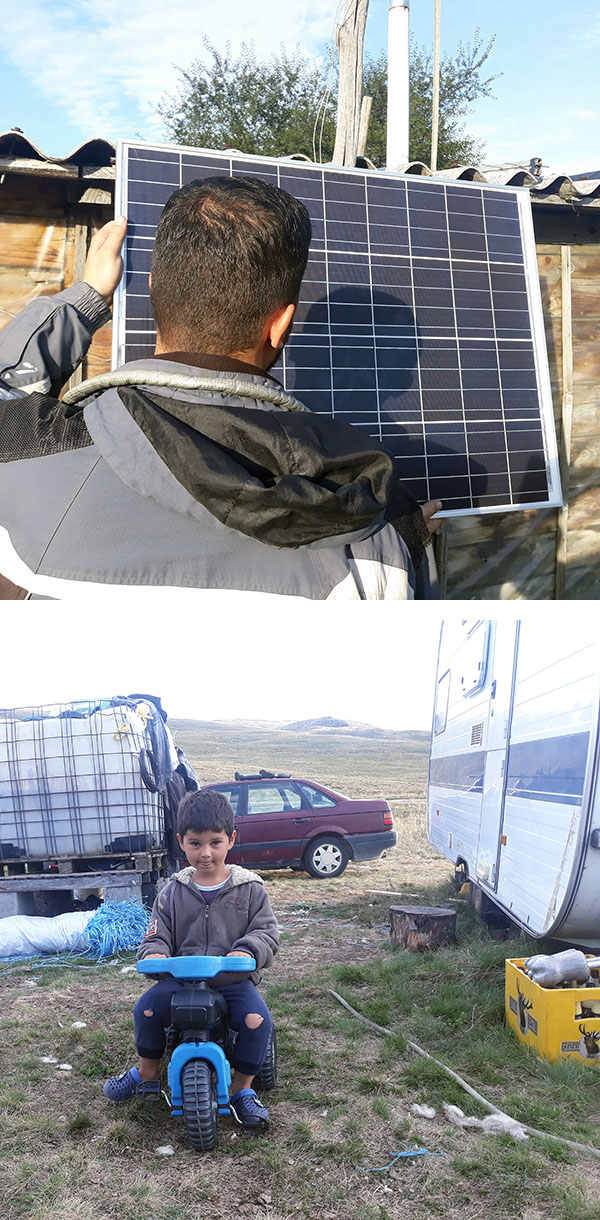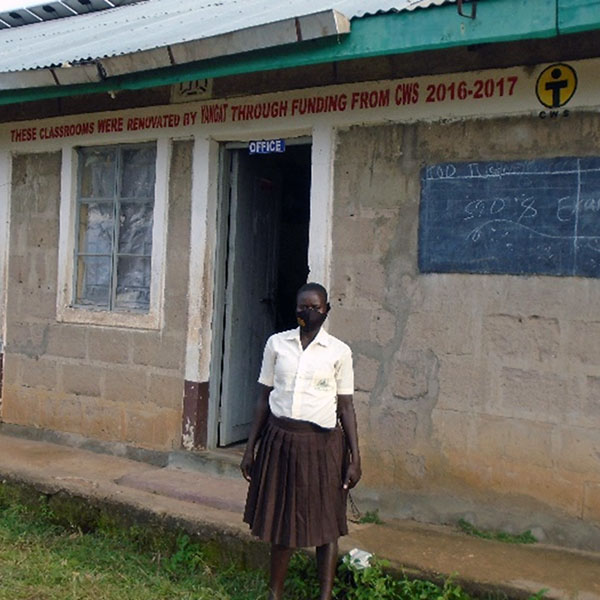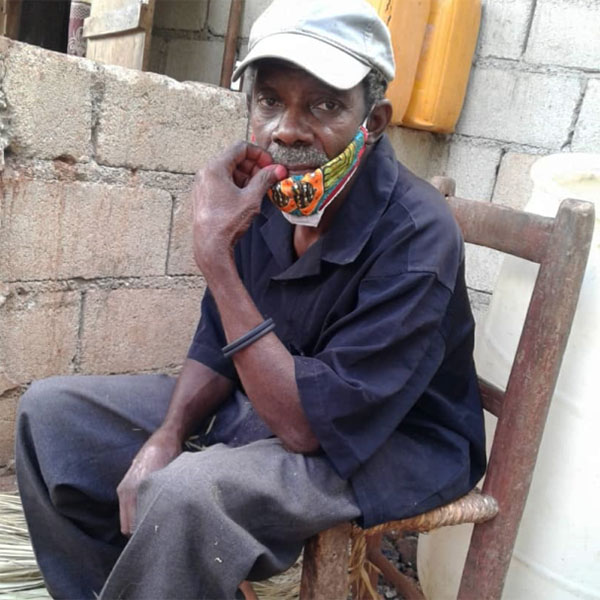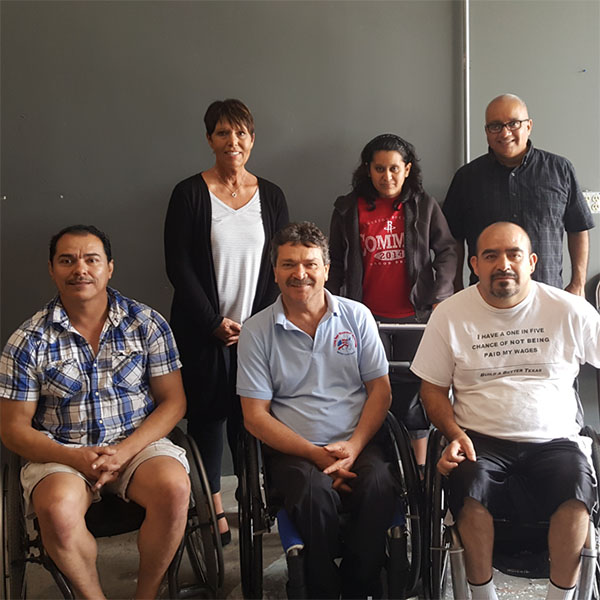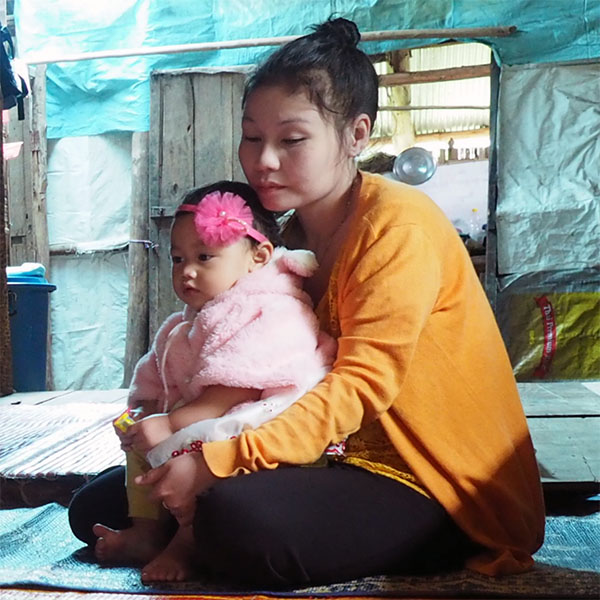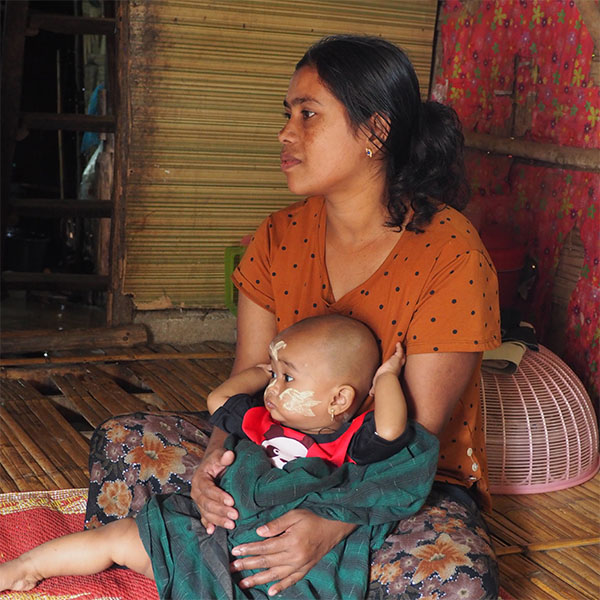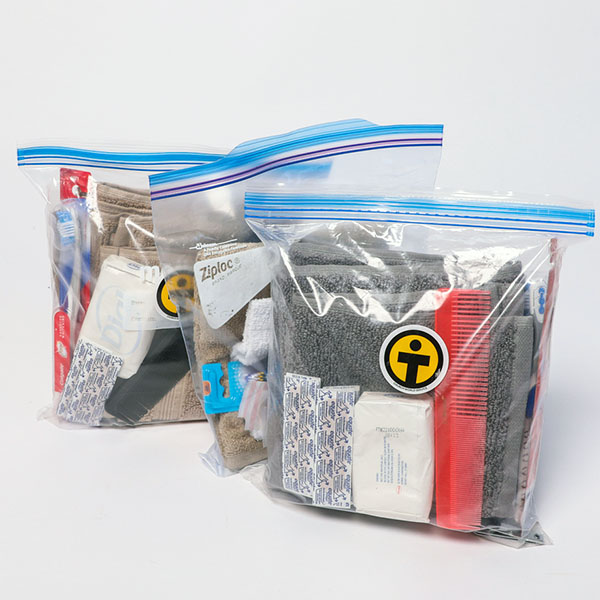Stories of Change

Top: Erasmo holds one of his daughters during a meeting with CJ staff. Middle: Yovanny and his mother pick up food packages. Bottom: Frank holds a food package.
Relief for Deportees, Returnees and Refugees in Mexico During the Pandemic
Erasmo Hurtado was living in the United States before the coronavirus pandemic. He was given a deportation order in March 2020, just as COVID-19 was starting to spread. He had four months to leave the country, or he would be put in a detention center. Erasmo and his wife packed up their six daughters and left for San Miguel de Allende, Mexico. He has relatives in San Miguel de Allende who he hasn’t seen for 30 years.
When Erasmo’s family arrived this summer, however, his relatives were unable to help. They were facing their own challenges as the pandemic ravaged Mexico. Erasmo’s family didn’t know how they would find a place to live or food to put on the table.
Through our partner Caminamos Juntos, CWS helps families like Erasmo’s in San Miguel de Allende. Thanks to support from CWS, Erasmo’s family found a safe place to live. Each month they pick up a food package from CJ. This has given the family a bit of breathing room while they assimilate into Mexican culture and create an action plan for what comes next.
Yovanny and his mom are also among the 80 people that CWS is helping through CJ. Both were deported to Mexico about a year ago. Yovanny, 29, had been living in the United States since he was just 9 years old. He struggled with Spanish when he arrived in San Miguel de Allende, since he had been speaking English for so long. Regardless, he has worked hard over the last year to focus on his education.
Because of his English, Yovanny was able to find a job in a well-known restaurant. That restaurant closed when the pandemic hit San Miguel de Allende, though. Yovanny and his mother were worried about how to pay rent and buy food. Thanks to the emergency fund at CJ, they have been able to meet their basic needs while continuing to look for work.
Not everyone who walks through the doors at CJ has returned from the United States. Frank, for example, is a 22-year-old from El Salvador who sought asylum in Mexico two years ago. He lives in San Miguel de Allende under refugee status now.
Like Yovanny, Frank had a job before the pandemic. But as the economic toll set in, the business could no longer afford to pay his salary. They won’t be able to pay him again until business picks up again. CJ has been helping Frank meet his basic needs in the interim.
Our partners at CJ wrote, “Caminamos Juntos thanks CWS for its continuous support, through which we implement our programs that provide legal advice, facilitate training for linguistic and cultural adaptation, provide advice on finding and accessing sources of work and education for employment, support training in different crafts and abilities and facilitate the access to study certifications from abroad, offer psychological support for the adaptation process, as well as the emergency fund that supports deportees and returnees and their families.”

